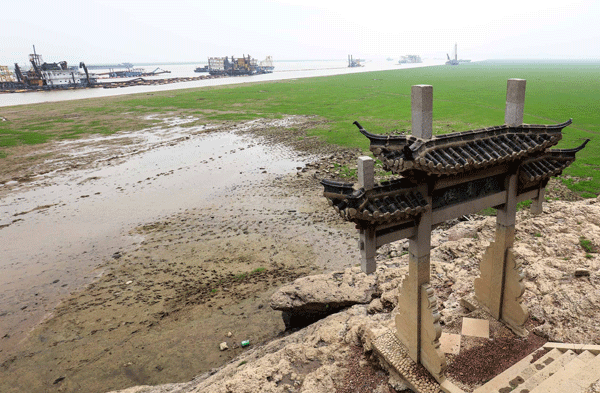
China’s Largest Freshwater Lake Is Shrinking
Huffington Post – Jan. 3
China’s largest freshwater lake is under serious threat, and it seems no one can agree on how to save it. Poyang Lake can swell to over 1,700 square miles, an area larger than Rhode Island. But photographs released by China’s state-run Xinhua News Agency in November show it completely dry in parts, desiccated by drought … “I think [they’re] proposing a solution without understanding the causes of the problem,” David Shankman, a professor at the University of Alabama who has studied Poyang Lake, told the Times. “The whole idea of the dam is that there would be some economic benefit, but there may be potential long-term ecological problems.”
‘The history of science is like an Indiana Jones-style treasure hunt – this is how we can engage learners’
TES.com – Jan. 4
At the beginning of a new year, I want to focus on some key elements of science that are becoming renewed in purpose, application and power in the classroom in the United States. They are the foundations of all scientific study: the history of science, the philosophy of science and the nature of science as a practice … In the first of a series of pieces on the foundations of science – and exploring what and how to teach them – I spoke to Erik L. Peterson, an assistant professor at the University of Alabama who previously taught in the history of science department at the University of Wisconsin-Madison. Here is part of our illuminating conversation.
Scaly wings help these butterflies soar
Science – Jan. 5
Aerospace engineers are always on the lookout for ways to make flying more efficient. Now, they’ve discovered a trick from nature that can do just that: the scales on butterfly wings. Those incredibly tiny scales—about 0.1 millimeter long—are arranged like roof shingles on the wing, making it a little rough. But until now, no one knew how that roughness affected flight … Using a special chamber with 22 cameras to track the insects with submillimeter precision, they found that the scales boosted climbing efficiency between 16% and 82%, they reported today at the annual meeting of the Society for Integrative and Comparative Biology (see video above). (University of Alabama researchers were involved with this paper.)
Also making headlines:
- Educated guess: Trump, Congress Won’t Mix – Jan. 2 – Joseph Smith
- THE PORT RAIL: Our outrage over hacking is the height of hypocrisy – Dec. 31 – Larry Clayton
- THE PORT RAIL: ‘I bring you good tidings of great joy’ – Dec. 24 – Larry Clayton